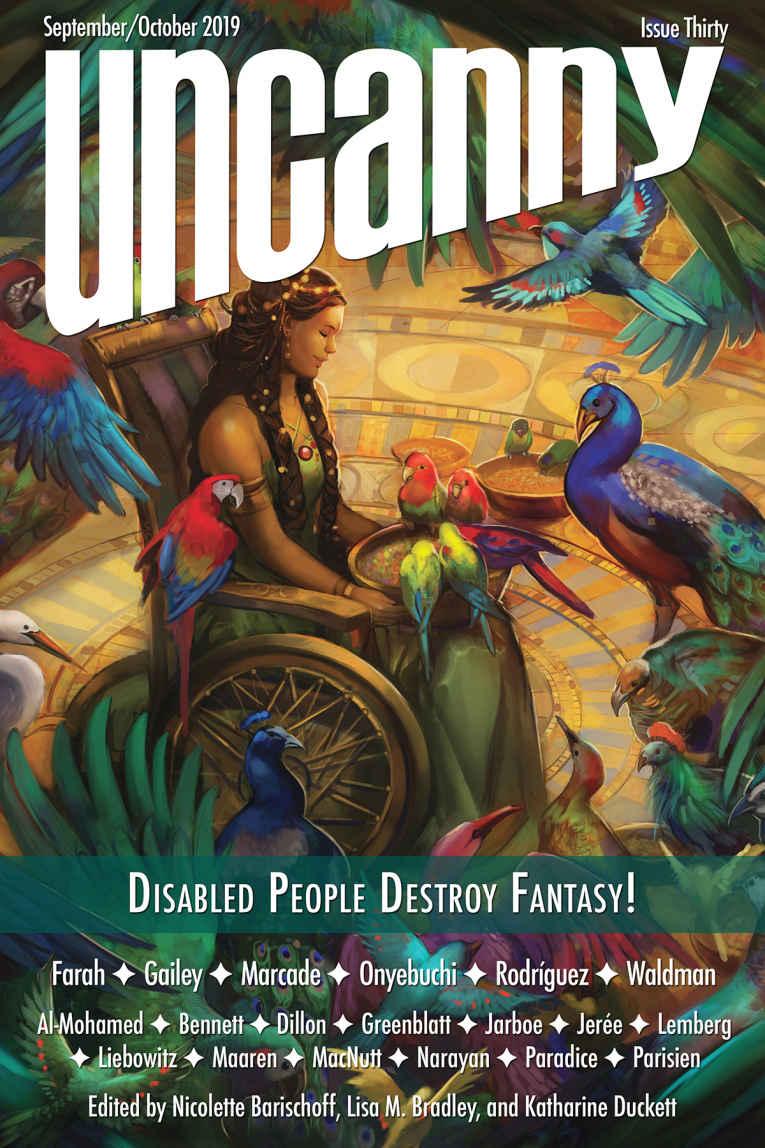NJIT's Elsa Sjunneson-Henry Joins Stars of Science Fiction at 2019 Hugo Awards

J.K. Rowling. Ursula K. LeGuin. Connie Willis.
By the time NJIT humanities professor Elsa Sjunneson-Henry left the stage at Ireland’s Convention Centre Dublin on the evening of Aug. 18, she would share a certain place among such historic stars of science fiction literature.
Though, the distinction she now shares with them also makes her a “first” in that literary universe.
“Hi, my name is Elsa Sjunneson-Henry and I'm the first deafblind woman to win a Hugo,” said Sjunneson-Henry as she began her acceptance speech at the 2019’s Hugo Awards — the most prestigious annual award ceremony in science fiction literature since its inception in 1953.
Under the lights at the center-stage podium beside a table lined with the ceremony’s iconic rocket-shaped Hugo awards, she continued:
If you’re disabled, and you’ve ever been told you don’t belong in publishing? Or just in the world in general?
This award, this rocket ship?
It’s ours to use to reach the stars.
Disabled narratives are desperately needed in our fiction. Disabled people will be in our future.
We have always been on this spaceship.
On stage with Sjunneson-Henry was Michi Trota, managing editor representing Uncanny Magazine, which won the 2019 Hugo Award for “Best Semiprozine.”
Sjunneson-Henry’s recognition came for her contributions alongside Dominik Parisien as co-editor-in-chief of the Uncanny Magazine’s special issue of short stories, nonfiction essays and poems published last September, titled “Disabled People Destroy Science Fiction” — an anthology that Sjunneson-Henry said has aimed to “put disabled voices at the center of the narrative.”

Back in her role as adjunct writing professor within NJIT’s Department of Humanities, Sjunneson-Henry is still riding the wave of excitement from her time at the awards ceremony, held at Dublin 2019: An Irish Worldcon, the 77th World Science Fiction Convention.
“I was, and still am, overwhelmed … I am truly gratified to be in the company of so many professionals who have won the Hugo Award both this year, and in the past,” said Sjunneson-Henry.
“I believe that Disabled People Destroy Science Fiction was truly groundbreaking work. Dominik Parisien and I spent the better part of a year making sure that the issue would reflect the values of inclusivity, interdependence and community that we wanted to showcase.”
Anyone who follows Sjunneson-Henry’s work will find that those values tightly woven into the fabric of her literary projects. A writer, editor and disability activist, Sjunneson-Henry has spent her career growing a collection of work that spans everything from inclusive game design text to disability-focused speculative fiction and non-fiction, including her current series of essays for Tor.com exploring blindness as it is portrayed in popular culture, titled “Constructing Blindness.”
Her work has been featured on CNN Opinion and the Boston Globe among other venues. But notably, it had been on the radar of Hugo Award attendees and organizers for some time. In fact, she was a four-time Hugo finalist heading into 2019’s ceremony.
Sjunneson-Henry’s winning contribution with Uncanny Magazine follows a successful string of “Destroy” anthologies first published by Lightspeed Magazine, such as “Women Destroy Science Fiction,” “Queers Destroy Science Fiction” and “People of Colo(u)r Destroy Science Fiction.”

“It was the kind of work that we hoped would get recognition, because disabled people are often forgotten and left in the margins,” said Sjunneson-Henry. “Clearly, the science fiction and fantasy world is hungry for it based on this recognition.”
“I hope that people who read my speech, and read Disabled People Destroy Science Fiction don’t just apply the concept of disabled people’s experiences mattering to fiction,” added Sjunneson-Henry. “I hope that they apply it to technological advances, to medical advances and to social change.”
With the fall semester now in full swing, Sjunneson-Henry says she is focused on her students both in classrooms and at the university’s writing center, not only impressing upon them the value of the written word, but the value of science fiction in their STEM careers.
“Those of us working in the field are constantly trying to imagine the future to be better and brighter than it could be, or laying out warnings for what the future could be,” Sjunneson-Henry. “I encourage students to engage with the genre that is reflected in their fields of study.”
Meanwhile, Sjunneson-Henry is not resting on “laurels or rocket ships.” She is currently at work on a new novel and other non-fiction projects while engaging her fans, many of whom will have no doubt already spotted a significant two-word update to her Twitter bio:
“Hugo winner. Spec Fic & NonFic Writer and Editor. Deafblind guide dog handler. Rabblerouser. she/her.”